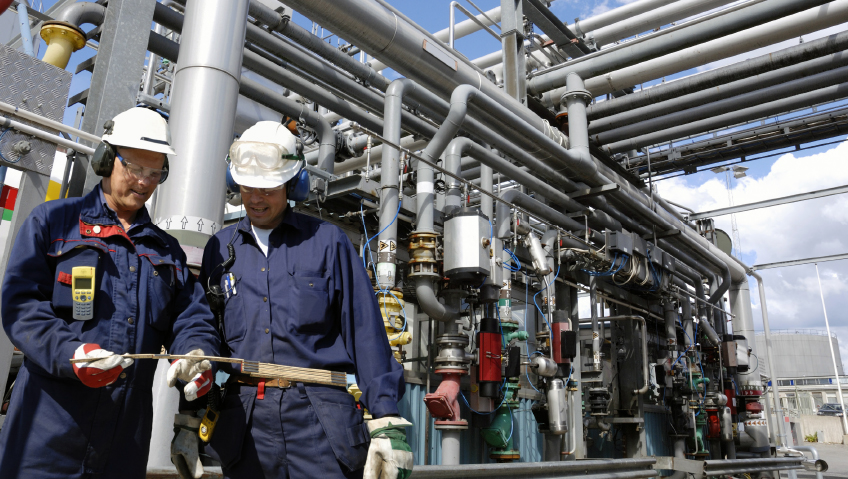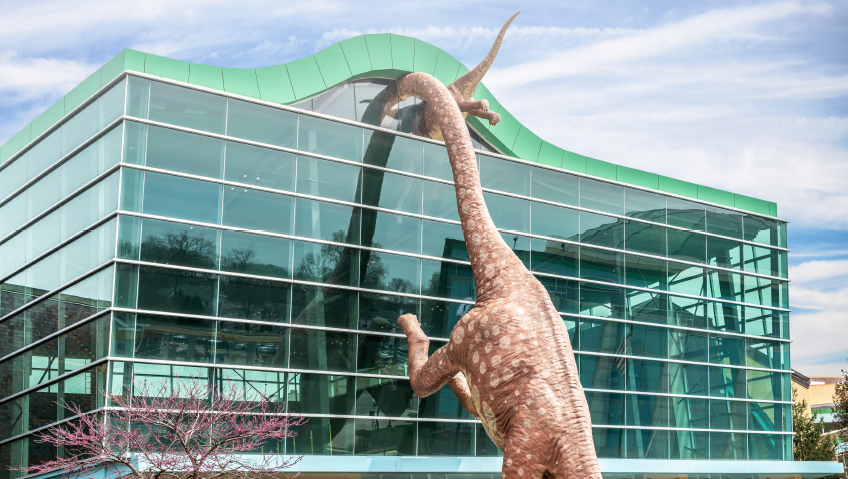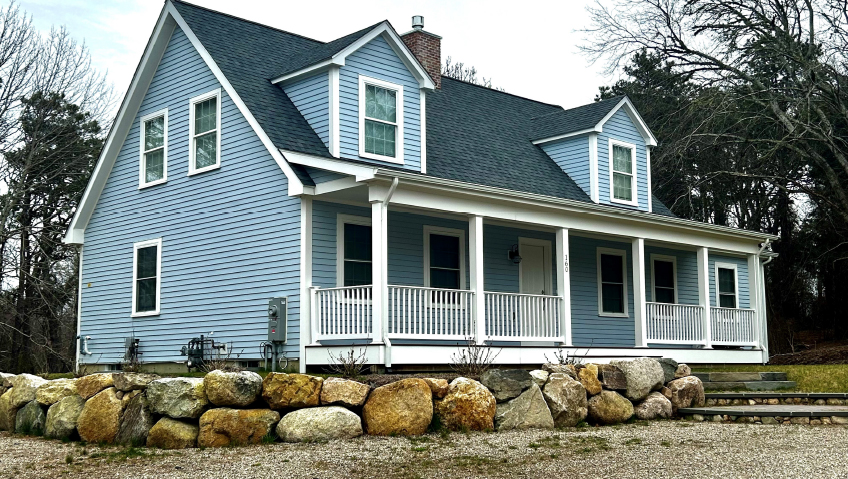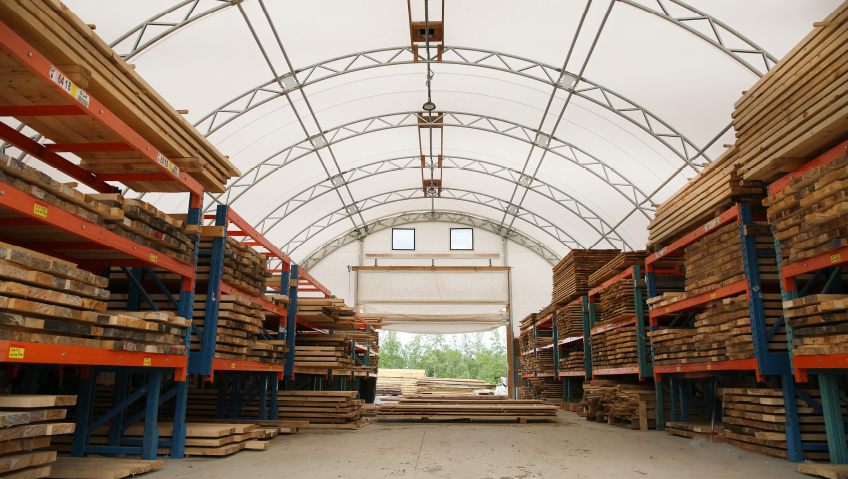The last time Business in Focus touched base with Allied Blower, the whole world was in turmoil. The company’s plans to expand to the United States had just run into an obstacle that nobody could have foreseen: COVID-19. Travel was restricted, and every business was wondering exactly what the impact would be on regular operations, let alone any expansion plans.
In the years since, the company has shown a remarkable degree of resilience, forged over decades of success. Allied Blower is celebrating its 50th anniversary this year, and Bruce Wendel is bullish about the U.S. expansion and the prospects for the company’s future. Wendel is one of three owners of the business; he is Principal and General Manager of Allied Blower & Sheet Metal Ltd.—the Canadian side of the company—and President of Allied Blower USA Inc.
Based in Surrey, British Columbia, the company now has a manufacturing facility in Mobile, Alabama. This manufacturing centre will ultimately support several service centres in the area. “We’re licensed in five states, with projects in most of them,” Wendel says, “and we’re working on two more.” The company currently works in Alabama, Louisiana, Florida, Arkansas, and Georgia.
The lumber industry in the Southeastern United States is rich with opportunity and is driving the expansion. South of the border, there are more independent lumber producers than in Canada, and this provides companies like Allied Blower with openings to connect directly with more owners making decisions for their business.
“These companies have deep connections to their communities,” says Wendel. “You’ll go into a community where ‘XYZ Lumber’ has operated for 100 years, and see ‘XYZ’ high school, ‘XYZ’ medical pavilion, ‘XYZ’ golf course. The owner is right there in the community, running the business with their family.”
Natural resources are big business for Allied Blower. The company serves the lumber industry in both Canada and the United States, in addition to the potash and uranium mining sector and some customers in manufacturing as well. Wherever a process produces airborne dust, there is a potential role for Allied Blower’s equipment and services, and those services are end-to-end.
“We design the systems for our customers. We manufacture 90 percent of what we put in, both the equipment and the ductwork, and all of that equipment is certified to various National Fire Protection Association standards,” explains Wendel. “We do the installation, commission the systems, perform inspection and maintenance. We do upgrades when a customer wants to increase the throughput in their plant or when they install a new machine.”
Allied Blower’s in-house capabilities are complemented by a network of strategic partnerships that it has built with other companies in the industry. These partners include companies like Air Cure, a baghouse filter technology company; Fargus-GreCon, a supplier of spark detection and extinguishing systems; and Albarrie, a manufacturer of non-woven filter fabrics and bags.
The team stands behind its systems, providing rapid support when a customer’s critical equipment malfunctions. Whatever the industry, downtime is costly.
“Breakdowns always happen on Friday night, of course,” Wendel laughs, “but we answer the phone and get right to it. We’ll get a crew there on the weekend and get it done. We’ll drive parts there if we need to or send them air freight—whatever it takes; we won’t walk away from a job until it’s right. We have strong relationships with our customers, and we protect those relationships.”
This commitment to its product and service has created loyal customers. “We’ve got a broad install base and a great reputation in the market,” says Wendel. “When it’s time for new equipment or upgrades, our customers come back to us.”
Like every other industry, technological developments are changing the game for Allied Blower. The next big step? Automation.
“Right now in the market, there’s a lot of instrumentation. Sensors are monitoring equipment and processes end-to-end. But automation? Not yet. That’s the push; that’s the future. Automation will mean that we’ll know what a piece of equipment is doing based on differential pressure or velocity or volume of air. We’ll know whether something’s wearing out or not working correctly, and we can provide that information to the customer,” says Wendel.
He is mindful of the fact that these kinds of proactive insights prompted by data may be perceived as intrusive. He understands that there is a balance to be struck: providing just as much information as the customer needs and no more. However, the potential to reduce costs for customers–particularly costs resulting from downtime–makes some level of automation a logical next step for Allied Blower.
With loyal customers returning to Allied Blower for additional equipment and services and a burgeoning expansion in the United States, there are few things that provide an impediment to growth. The biggest single challenge is people, specifically the availability of the highly skilled tradespeople that Allied Blower needs to serve its customers.
The people the company needs are primarily sheet metal workers certified by the Canadian Welding Bureau (CWB) in Canada and the American Welding Society (AWS) in the United States, having some experience working in industrial environments. Those people are in short supply and extremely high demand on both sides of the border.
“Access to skilled trades is certainly a challenge,” Wendel says. “It’s worse right now in the U.S. than in Canada; the labour market is tight here, but it’s even hotter there.”
When talent is in such high demand, there are a number of ways to approach the problem. A company can try to compete with compensation packages or provide a working environment and culture that attracts talent from other companies. It is more difficult when high-demand talent is also in extremely short supply. In that case, a company has to do all those things and more.
For Allied Blower, ‘more’ means developing its own talent pools. The company deliberately creates breaks for younger people with limited experience to enter the company and train as they work, and apprentices are a key pillar of the talent strategy.
“It’s important for us to create a career path,” Wendel says. “We provide opportunities for people to come in and have a great job and one that they can translate into a career path. Some of the tradespeople will ultimately move off the tools into an estimating role or eventually a management position.”
Allied Blower supports the growth and development of these employees by funding training provided by local educational institutions. This may include technical training in the trades or estimating or even leadership training for those on the road to management roles. “We’re doing the same in the U.S. You have to have a certain number of journeymen before you can hire apprentices, of course, but that’s started.”
Not surprisingly, another challenge associated with a shortage of talent is succession planning. When younger employees are staying for shorter periods of time in any particular job and company, it is tough to build the kind of strength that a business needs for sustainable growth. “Succession is definitely a challenge. We’ve got key people moving toward retirement age, and it’s tough to lose that experience. We hope to bring more people in and transition those people into the leadership of the company in the future.”
In the meantime, as Allied Blower approaches its golden anniversary, it has both a proud legacy and a very bright future to offer that next generation of leaders. Renovations to the facility in Surrey are underway, and there are plans afoot for well-deserved celebrations marking 50 successful years in business.






